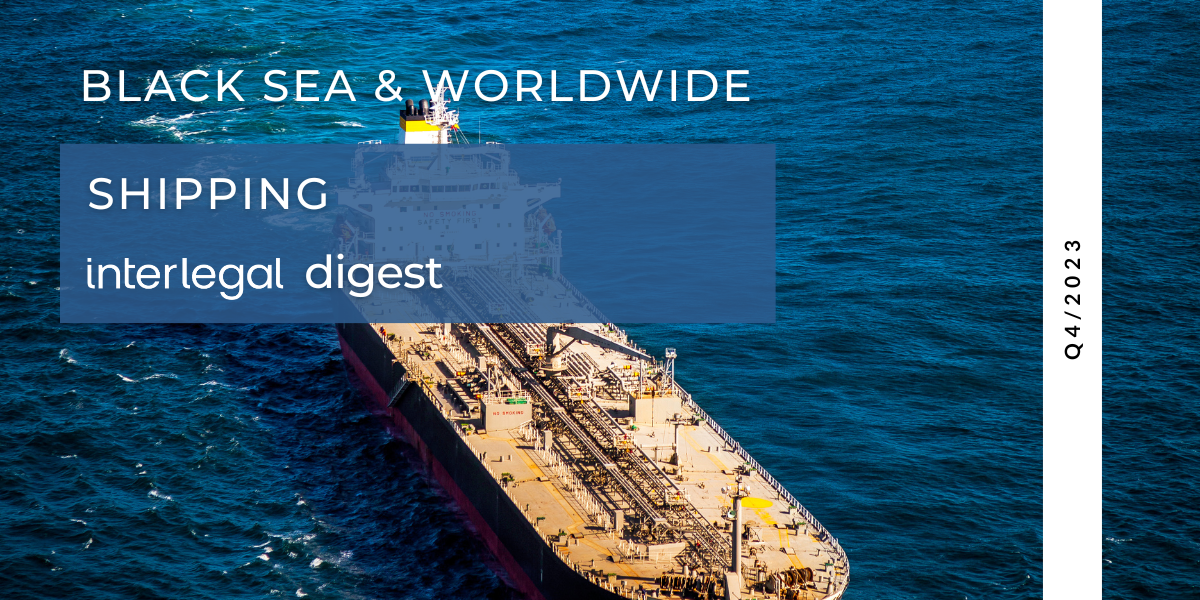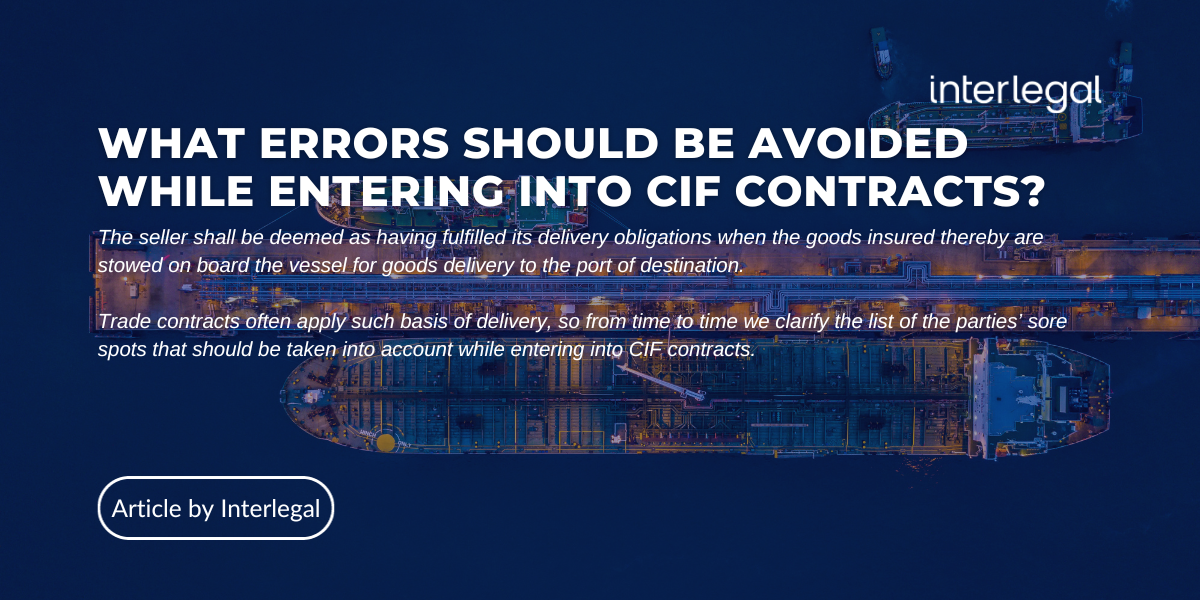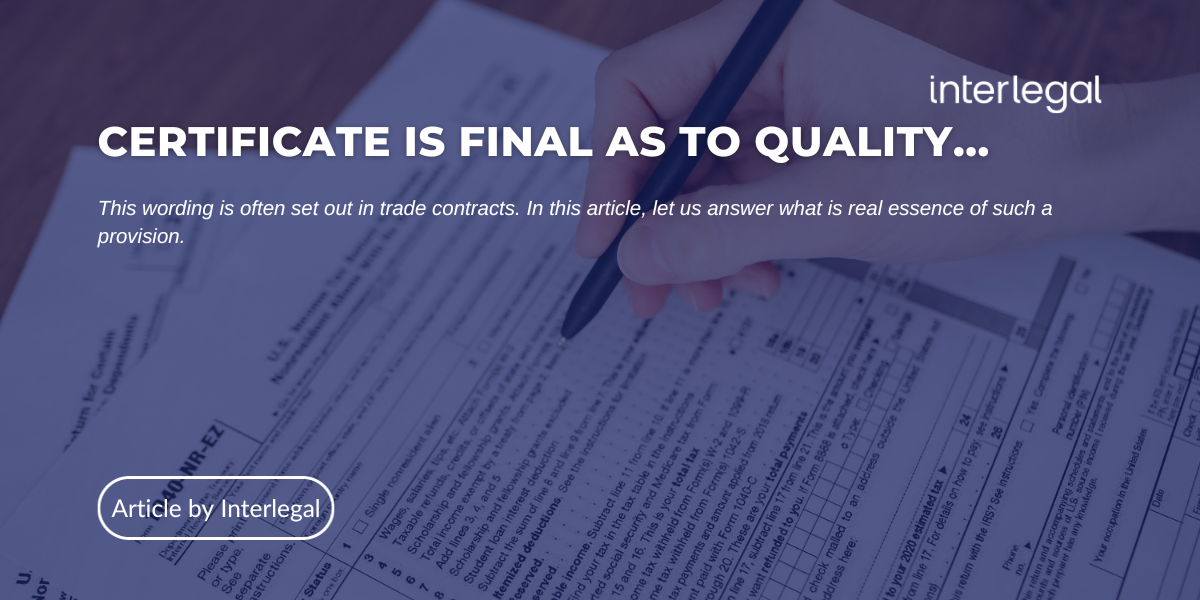Arrest of vessels in Black sea countries
7 September, 2014
3
The countries of the Black Sea Basin (Ukraine, Russian Federation, Georgia, Turkey, Bulgaria, Romania and Moldova – new Black Sea сountry) have their features of ship arrest. Yes, there are special rules which govern the arrest of ships in each Black Sea Country. Therefore we may say that efforts to create a uniform set of rules have not been fully succeeded, making it difficult to provide legal support and have ships released from detention. But it does not mean that there are no results from efforts of maritime world toward unified law. For example, Russia, Romania and Ukraine are members of the International Convention for the Unification of Certain Rules relating to the Arrest of Sea-Going Ships (Brussels, 10.05.1952). Bulgaria is a member of the separate International Convention on the Arrest of Ships (Geneva, 12.03.1999). Other states are members of neither convention on ship arrest.
Bulgaria
Bulgaria is one of few (10) member states of the International Convention on Arrest of Ships that was made in Geneva on 12.03.1999 and entered into force on 14.03.2011. A ship may be arrested in the Bulgarian port both as security for a maritime claim and as the security for a claim under the Civil Procedure Code of Bulgaria dd. 06.07.2007 which entered into force on 01.03.2008. The Merchant Shipping Code of Bulgaria dd. 24.06.1970 does not provide for the right of arrest of associated vessels to secure a maritime claim. But under the abovementioned Convention such an arrest is allowed under the following conditions: at the start of the procedure relating to the arrest of a ship or ships they are owned by a person liable for the maritime claim and which at the time when the claim arose was the owner of the ship in respect of which the maritime claim arose, or charterer or the bareboat charterer, time charterer or voyage charterer of that ship.
Ukraine
In Ukraine, the situation is somewhat similar to Bulgaria, i.e. a vessel may be arrested as security for a claim, to ensure maritime claims, or to satisfy interim measures under Part 4 Article 114 of the Civil Procedural Code dd. 18.03.2004 or under Article 16 of the Commercial Procedural Code dd. 06.11.1991. Of course, Ukraine’s membership in the International Convention for the Unification of Certain Rules Relating to the Arrest of Sea-Going Ships made in Brussels on 10.05.1052 brought an element of order and civility to the practice of ship arrest in Ukraine. It seems now that the extra-judicial arrest of a ship in a modern legal framework of Ukraine is impossible. However, court practices are still controversial and unsettled. Essential uncertainty in the Ukrainian court practice is provided by Clause 1 Part 1 Article 14 of the Merchant Shipping Code which states that regulations upon ship arrest shall be applied only to ships registered in Ukraine.
Russian Federation
Although Russia is a party to the International Convention for the Unification of Certain Rules relating to the Arrest of Sea-Going Ships, the practice of arresting ships is still controversial. For example, a ship can be arrested as a result of bankruptcy proceedings and be treated as a piece of property unrelated to a maritime claim. The procedure that exists in the family of common law jurisdictions (in rem) is not available in the Russian Federation. If the defendant appeals for counterclaim against the claimant that appeals on vessel arrest the court usually decides on providing cross-undertaking, although according to many lawyers access to justice is limited in such a case. The Merchant Shipping Code of Russian federation adopted in April 1999 and entered into force on 01.05.1999 includes the modern trends in relationship upon ship arrest which were reflected both in Convention on Arrest of Ships and in the Merchant Shipping Code of Ukraine. In particular, it expanded the list of maritime claims as compared with the Convention dd. 1952. This list corresponds to the list set forth in Article 1 of the Convention dd. 1999.
Romania
Romania introduced new rules on arrest of ships as part of its new Civil Procedure Code that entered into force on 01.02.2013. One of the most important provisions is that a ship may be arrested before the statement of the claim on the merits is filed. The statement must be submitted with a court within 20 days from the date of claim on a ship arrest. If the statement of claim is not filed within that period the vessel must be released. In case of need in urgent arrest imposed by harbour master the claimants shall pay fee in the amount of EUR 400 (EUR 800 in the weekends). The evidence which confirms that the person being responsible under the maritime claim is a ship owner shall be submitted to the court which makes a decision on vessel arrest.
Georgia
The Maritime Code of Georgia dd. 15.05.1997 regulates arrest of ships in a rather simplified form. According to the Civil Procedural Code of Georgia ship arrest is possible only for the purpose of maritime claim security. Hereby the application on claim security shall be submitted to the same court within 10 days, otherwise the vessel shall be released. In case when proceedings are initiated under the claim filed by ship owner’s creditor beyond Georgia, the court can make a decision on vessel arrest. Therefore in Georgia there is a court practice upon ship arrest both under maritime claims and under claim security. Ship owner’s claims on cross-undertaking are usually satisfied by the court. Hereby the claimant shall submit cross-undertaking within 10 days, otherwise the vessel shall be released.
Turkey
Although international conventions on ship arrest are not valid in Turkey, the new Commercial Code of Turkey which entered into force on 01.07.2012 includes regulations on ship arrests that are in line with international global practice. Nevertheless, Turkish common practices remain conservative. For example, a ship can only be arrested for the debts of the ship owner or when the vessel is the subject to a maritime lien. A widespread practice is that of requiring some form of cross-undertaking or bail. The size of the collateral, usually a bank guarantee or deposit, rarely exceeds 15-40 percent of the maritime claim. The amount of cross-undertaking required may reach SDR 10,000 regardless of the amount of the claim. Turkish law is rather variable. Under the new rules, a new problem has emerged: proving jurisdiction of the Turkish court.
Moldova
Moldova has become a maritime nation by gaining access to the Black Sea through the port of Giurgiulesti. Ship arrest practice in Moldova is in its infancy. Although Articles 45 – 51 of the Merchant Shipping Code of Moldova dd. 20.08.1999 provide fairly progressive standards governing ship arrest, Moldova, like Turkey and Georgia, is not a member of any international convention on arrest of ships.
Therefore it is obvious that Black Sea countries: Ukraine, Russian Federation, Georgia, Turkey, Bulgaria, Romania and Moldova have faced a various practice in sea vessel arrest, so to arrest a vessel in any jurisdiction is not that simple even for experts. It is typical for private international law relations in whole that each jurisdiction has its own peculiarities. Nevertheless, all the Black Sea basin jurisdictions belong to the family of civil law and it makes their law systems similar. All these countries are emerging economies. Business here is quite similar by mentality and paperwork approach.
Relations between the parties involved in the vessel arrest procedure are usually quite difficult. The arrest may cause situation which is difficult to settle by legal means, so the arrested vessels may stay idle for months. Therefore we usually advise the parties to search for compromise timely, trying to avoid vessel arrest.
Published in scma.org.sg


























































